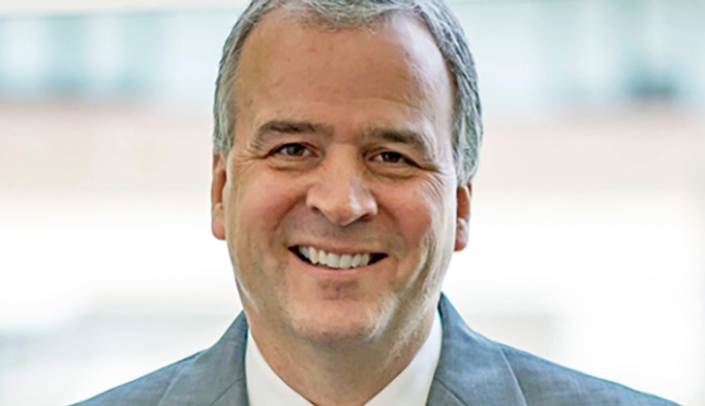A new paper, written by a team of emergency medicine department chairs at eight prestigious academical medical centers across the country — including Michael Wadman, MD, of UNMC — lays out the growing dangers of emergency department (ED) overcrowding and offers solutions for the problem, which has become especially dire during the COVID-19 pandemic.
The paper, published in the New England Journal of Medicine’s Catalyst, lays out the reasons for ED overcrowding and offers a series of suggestions — many of which already have been implemented at Nebraska Medicine — to address the problem and improve patient safety.
"ED crowding is nothing new, but definitely this is the worst it’s been, and it’s exacerbated by a number of factors, which include the COVID pandemic," said Dr. Wadman, chair of the UNMC Department of Emergency Medicine and one of the authors of the paper.
Ironically, Dr. Wadman said, he and his colleagues had started working on the piece before the COVID-19 pandemic began. The eight-member author group was enlisted by the Association of Academic Chairs of Emergency Medicine (AACEM) and given a mandate to define the problem and describe possible mitigation efforts.
"But the pandemic really revealed some of the shortcomings we have in the health care system in terms of inpatient capacity, because the COVID patients have long lengths of stay and are in inpatient beds longer – this is a real issue for us. When ED beds are occupied by inpatient overflow, access to health care for patients from the community is compromised."
The length of time a patient is in an ED bed – known as "boarding" – should be less than four hours, and ideally less than two, Dr. Wadman said. But the length of time COVID patients and other critically ill or injured patients occupy ED beds, as well as other factors such as the use of ED beds for psychiatric patients, have led to increasingly long boarding time, which impacts patient safety.
The purpose of the paper, titled "Emergency Department Crowding: The Canary in the Health Care System," is not only to call attention to the problem, but to offer solutions that have alleviated conditions in the authors’ medical systems.
"The good news for us is that we are already working to mitigate the problem," Dr. Wadman said.
For example, Nebraska Medicine has a "Physician of the Day," whose role is to review patient transfers and placements — putting patients in the right place to get care but also opening bed space and optimize the use of acute care beds. Psychiatric patients now are being relocated from the ED to Psychiatric Emergency Services, which also has helped alleviate a portion of the problem.
"Our institution has responded at every step of the way with strategies that we have in the paper that are recommended as best practices or very helpful, but we need to do more," Dr. Wadman said.
"No one’s solving the problem completely, and I don’t think you can until you get the regulatory agencies and payers align systems so that, for example, if you don’t reduce boarding time in the ED to below four hours – or preferably two hours – then you’re not going to be paid. Hospitals that need to operate above 85% capacity to survive virtually assure ED crowding and impede access to ED care."
Dr. Wadman said the medical center’s big advantage is that Nebraska Medicine and UNMC leaders understand the potential risks of ED overcrowding to patient safety.
"We’re addressing the problem, and leaders at the top understand the scope of the problem," he said. "When we talk about this on a national scale, one of the leading issues that needs to be addressed is getting institutional leadership to recognize that in terms of patient safety, this is important. We have that here.
"We’re still experiencing the same ED crowding problems you’re seeing in large cities across the country, it’s still affecting us. But we have the pieces in place to address it, if we have the will to do it."

Thanks for your leadership in this area, Dr. Wadman! Much appreciated!
What an incredibly dedicated group of people Nebraska Medicine has in the Emergency room!
Everyday, I am grateful to the care provided to the patients–thank you for all the leadership and for all the dedication to the experience of being a patient at UNMC and Bellevue Emergency.